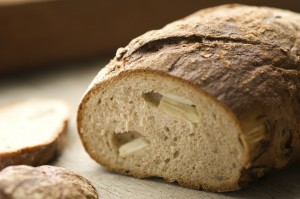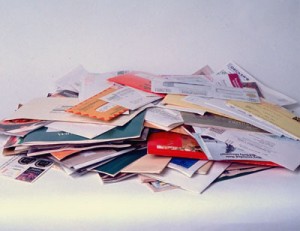Organizing 101: Getting Rid of Clutter and Stress
Whether we like it or not, the condition of our home environments can have a significant impact on our mental and/or physical well-being. In this class you will learn how to:
- Manage your home environment more effectively
- Reduce the negative emotional impact of clutter
- Focus on being purposefully organized rather than perfectly organized
- Understand the “power of limits” and why beauty is such a critical element in the homemaking process
- Realize your spaces and possessions can be resources and not burdens
Organizing 201: Kitchens, Closets and Cleaning
 Practical homemakers know the importance of treating a home (and every room in it) as a tool or resource to be used wisely. In this class we will:
Practical homemakers know the importance of treating a home (and every room in it) as a tool or resource to be used wisely. In this class we will:
- Discuss the purpose of a kitchen and how to arrange kitchen contents effectively
- Explore different ways of organizing closet spaces
- Get information about practical and realistic cleaning routines, tips and tools
The Two-Week/Three-Month Pantry: Prepared for Today and Tomorrow*
 What if you always knew the answer to the question: “What’s for dinner?” And what if knowing what’s for dinner today helped you save time, energy and money while also building food storage for tomorrow? In this class we will:
What if you always knew the answer to the question: “What’s for dinner?” And what if knowing what’s for dinner today helped you save time, energy and money while also building food storage for tomorrow? In this class we will:
- Discuss the definition of a Two-Week/Three-Month pantry and how implemeting this strategy can reduce stress today and potential stress in the future
- Walk you through the steps to develop a Two-Week/Three-Month pantry for your own family, complete with menus, recipes, inventory and pre-made shopping lists
- Explain how to gradually obtain a Three-Month Pantry working within your current grocery budget
[*Note: There is a Two-Week/Three-Month Pantry booklet available for this class containing already developed menus, recipes, shopping lists, etc. Cost is $8/booklet. Purchase is optional]
Organizing Spaces: Perspectives and Principles
Being “organized” (or organizing a space) is a what. To truly be effective, you need to understand the why behind what you are doing. In this case, the why is almost always some form of resource management. During this presentation you will:
- Learn how to identify what you are really trying to accomplish when you say you want to “get organized”
- Understand entropy – the natural tendency for things to become less organized – and the role intelligence and law plays in producing order
- Learn how to use “chunking” and a “hierarchy of values” to more quickly establish and/or identify the precise location of an item
Downsizing and Right-sizing
Just the idea of having to downsize the contents of a larger home into a smaller one (either for yourself or a loved one) can be overwhelming. The task of determining what to do with belongings collected over a lifetime can be mentally exhausting and emotionally stressful. As difficult as this process may be, however, the end result can be wonderful, if done in a systematic and purposeful way. During this presentation we will:
- Discuss some of the various reasons individuals or families are faced with the need to downsize
- Identify the purpose of “right-sizing”
- Learn what steps to take in the downsizing process that will help you (or a loved one) get the most out of the next phase of life
Your Time/Your Life: Time Management for Real People

“Time” management is really “choice” management. Everyone receives the same 24 hours in a day, but it is what you choose to do with your time that determines the level of your effectiveness and the degree of your family’s overall happiness. During this presentation you will learn:
- Map your current daily/weekly schedules and routines
- Compare how much time may be needed to manage your home with how much time you actually have available
- Take less time doing what you have to do, so you can have more time to do what you want to do
Time Management for Teenagers
“Time” management is really “choice” management. Teenagers receive the same 24 hours in a day, but it is what you choose to do with your time that determines the level of your effectiveness and the degree of your family’s overall happiness. During this presentation you will learn:
- Map your current daily/weekly schedules and routines
- Compare how much time may be needed to manage your home with how much time you actually have available
- Take less time doing what you have to do, so you can have more time to do what you want to do
Making Homemade Soups and Breads
 Have you ever wanted to try making your own soup or homemade breads from scratch but were too intimidated by the recipes to try? Come to this class and learn:
Have you ever wanted to try making your own soup or homemade breads from scratch but were too intimidated by the recipes to try? Come to this class and learn:
- The differences between making “soup” and making “stock” and how both items can contribute to a better use of your food budget
- How to keep yeast alive during the beginning stages of the bread-making process and the methods for kneading, shaping and baking bread successfully
(Recipes provided)
Getting Started: Homemaking, Self-Reliance and Self-Esteem
 You have the ability to make a steady and lasting impact on your family by the work you do in your home. You also have the chance to experience some serious boosts in the way you feel about yourself. Self esteem—pride in a job well done—comes when you as a homemaker:
You have the ability to make a steady and lasting impact on your family by the work you do in your home. You also have the chance to experience some serious boosts in the way you feel about yourself. Self esteem—pride in a job well done—comes when you as a homemaker:
- Are conscious of what it is that you are doing
- Are living and working with a clear goal in mind
- and can clearly measure your success
This workshop will cover how to live happier in your home through the better management of your personal and household resources. If you want to have less stress, more money and be more effective in your work as a homemaker then you’ll want to be sure to attend.
Making Scones and More: Exploring the Creative Process
 Question: What would you do if you had never made a scone and were suddenly faced with the task of baking thousands of scones for the Puyallup Fair?
Question: What would you do if you had never made a scone and were suddenly faced with the task of baking thousands of scones for the Puyallup Fair?
Answer: Panic…and then write a book, of course!
- In this class, author Beverly Pogue will discuss surprises and other aspects of the creative process while demonstrating how to design and make your own homemade scones.
Based on the book: “Sharing Scones and More” by Beverly Pogue and Rosalie Clarke. (Recipes provided.)
Frugal Grocery-Shopping: How to Manage Your Food Budget to Pay Down Your Debt
Do you think you’re spending too much money on food each month, but you’re not sure? Do you want to save money on groceries, but “extreme couponing” is not an option? Do you wonder if you could make better use of the food budget, but never learned how?
In this class you will learn practical ways to:
- Set a reasonable food budget
- Track food expenditures
- Reduce money spent on food
- Use the money you save to start paying down your debt
Basic Budgeting for the Home
 Money is a resource. The ability to manage money wisely is one of the most important skills any homemaker or individual can have. It’s serious business, but it can also be a lot of fun. In this workshop we will learn:
Money is a resource. The ability to manage money wisely is one of the most important skills any homemaker or individual can have. It’s serious business, but it can also be a lot of fun. In this workshop we will learn:
- How to get started with a simple budget
- The Four “Ts” of money management and how they can help you succeed
- Some simple ways to organize your finances
How to Finish Projects and Boost Your Self-Esteem
It isn’t much fun having a bunch of unfinished projects kicking around your house cluttering up your space. Not only does all that unfinished business sidetrack your attention and drain you of much-needed daily energy, but it can become a nagging source of irritation and a constant reminder of failure. Don’t let it be this way. As creators, our projects (in the home or elsewhere) should and can be a source of increased energy, personal satisfaction, and positive pride.
In this class you will learn:
- How to identify and prioritize your projects
- Ways of planning, tracking and managing your projects (online or otherwise)
- Ideas to help you stay focused and motivated to finish projects in a timely manner
- Why it’s fantastically okay to brag about your success when you’re done
Paper, Piles & Files: What to Do with All That Paper
 Despite increased opportunities to store data in digital format, the Information Age still shows up in our homes as piles and files of various forms of paper.
Despite increased opportunities to store data in digital format, the Information Age still shows up in our homes as piles and files of various forms of paper.
Mounds of mail, newspapers, and magazines collect on tables, wallets bulge with shopping receipts, inboxes overflow with bills, and school notebooks, binders and papers clutter backpacks and bedrooms. Everywhere you turn there is some piece of information that you don’t quite know where to put. Is there a way to weed it all out or at least tell where it belongs? What does one do with all that paper?
In this class you will learn:
- Filing systems and suggestions to help you deal with bills, mail, children’s papers and more
- How to tell what papers to keep or toss according to IRS and other productivity-oriented guidelines
- Better use of your inbox.
ADDITIONAL CLASSES
- How to Implement and Use Long-Term Food Storage
- Hope-Filled Choices on Overwhelmed Days: Managing Thoughts and Actions to Deal with Stress
- How to Teach Children Confidence and Self-reliance Through Chores
- Teaching Your Young Child to Read (in Less Than 5 Minutes/Day)
All sessions or classes last 50 to 60 minutes, unless otherwise noted. Handouts and followup emails are included. Clients may text or email with further questions at no additional charge.
